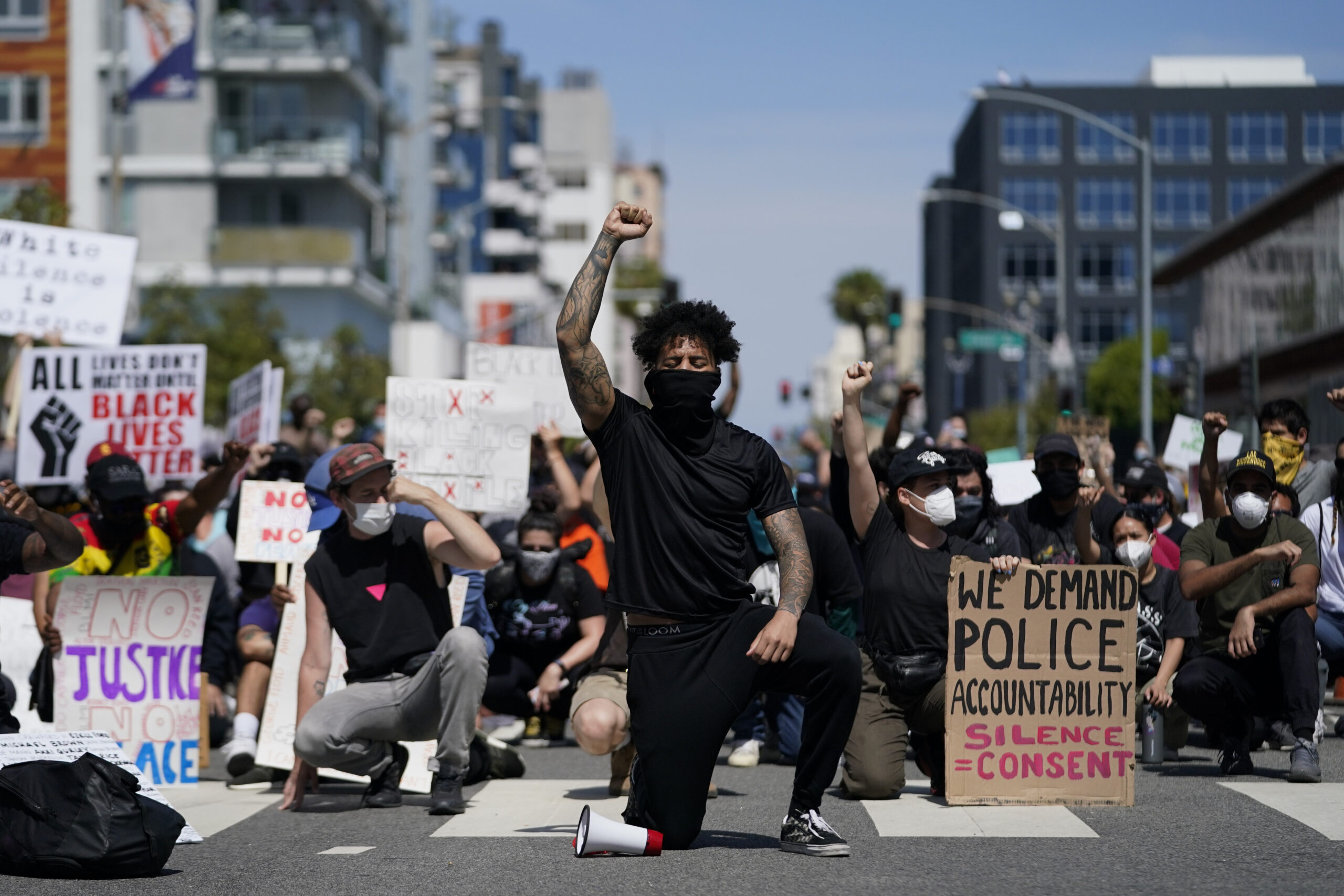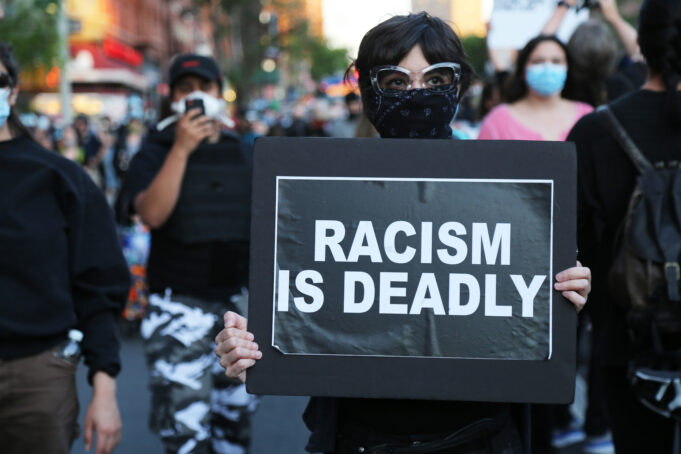As police violence goes unchecked, activists and advocates are still pushing for reform.
Over 30 states have passed more than 140 new police oversight and reform laws, according to a New York Times analysis of data from the National Conference of State Legislatures, but activists are saying that’s not enough. And, with increased crime during the Covid-19 pandemic, talk of reform has waned.
President Joe Biden is promising to sign executive actions on police reform whilst simultaneously increasing police funding. Police kill about 1,000 people every year with very little accountability. In 2021, 1,134 people were killed by police, 97 percent from police shootings, according to the Mapping Police Violence Project’s 2021 Police Violence Report. Officers were charged with a crime in only 11 of these cases, the report states, and there were only 15 days throughout the year where a person was not killed by the police.
“I think one of the biggest problems is that police reforms are in the hands of the police and that there are no external entities that are imposing accountability and change on the police,” said Barbara Arnwine, lawyer and founder of the Washington, D.C.-based nonprofit Transformative Justice Coalition, to The Final Call.
She said people have looked into changes in policing since the murder of George Floyd by former Minneapolis police officer Derek Chauvin, who was found guilty of murder and manslaughter. But, she said, they “come back with reports of stagnation, that reform is not moving ahead.”
One obstacle she listed is the Fraternal Order of Police, an organization whose leadership and members have defended officers who abuse or kill on the force.
The Mapping Police Violence Project recently detailed how Black people were more likely to be killed by police, more likely to be unarmed and less likely to be threatening someone when killed. Black people make up 13 percent of America’s population but were 28 percent of the people killed by police in 2021.
“That total interaction between police and people of color is fraught with danger,” Ms. Arnwine said, naming “forced artificial engagements” with police that escalate to a person’s death. “And every time you are pulled over, every time your home is invaded or approached or knocked on the door, you have no clue where it will go,” she said.
Memphis-based Nation of Islam author, researcher and Student Minister Demetric Muhammad noted the historical link between police violence today and the colonial-era slave patrols. “Their first assignment was in the economic interests of plantation owners and slave masters. Their assignment was to arrest and detain and if need be, to kill Black men, women and children whose only crime was their desire to live with the God-given freedom that every human being and every living thing has,” he said.
He described the negative interactions between citizens and police as “fruit that is born of centuries of the deprivation of the principles of peace, freedom, justice and equality.”
Ms. Arnwine said she has been hearing there has been a decline in Black people calling for police assistance due to the fear of being killed and that reports on racial profiling, especially driving while Black, continue to have high numbers.
Experts, law enforcement groups and the U.S. Department of Justice recommend that police be banned from shooting at people in moving vehicles, the Mapping Police Violence report stated. “These shootings are particularly ineffective and dangerous, since shooting the driver can make the vehicle an uncontrollable threat to both officers and the public,” said researchers.

But “despite this,” the report continued, “most police departments continue to allow officers to shoot people in these situations.”
The report also states that 57 percent of killings by police in 2021 were traffic stops, police responses to mental health crises or situations where the person was not reportedly threatening anyone with a gun. “Creating alternative responses to these situations could substantially reduce this violence nationwide,” the report said.
Ms. Arnwine noted the wave of progressive prosecutors who have been making change. Black female prosecutors in particular were nine percent of prosecutors who charged officers for killing someone, 13 percent of prosecutors convicting officers and 20 percent of prosecutors charging officers in two or more deadly force incidents from 2013 to 2021, despite representing only one percent of elected prosecutors, according to Mapping Police Violence.
“I think that suggests who the prosecutor is actually does matter to your likelihood of seeing accountability in some of these cases,” said Samuel Sinyangwe, the founder of Mapping Police Violence.
As pressure mounts for police reform, the percentage of adults who say spending on policing in their area should be increased rose from 31 percent in June 2020 to 47 percent in October 2021, according to data from the Pew Research Center. Black adults are more likely to say that spending should be decreased.
Deputy Attorney General Lisa Monaco said in a recent interview with CNN that “cutting funding to law enforcement when crime is on the rise does not make sense. That’s a mistake.” She touched on 1,000 new police officers the Justice Department has funded and the budget proposal to Congress for an additional $300 million to fund state and local law enforcement.
Indeed, during an address to the U.S. Conference of Mayors on Jan. 21, Pres. Biden stated, “We shouldn’t be cutting funding for police departments. I proposed increasing funding.”
Demetric Muhammad recalled how President Biden was one of the main architects of the 1994 crime bill. “That crime bill has been identified as being responsible for the arrest and the imprisonment of millions of Black people who had their problem with substance abuse criminalized,” said Mr. Muhammad. “During the time of the crime bill, the so-called crack addict was portrayed as a criminal that needed to be harshly dealt with.”
He doubts Mr. Biden has changed since then in terms of his understanding of what is producing crime and violence in America nor has the motivation or desire to make the problems go away.
“Because crime and punishment are big business. And so I don’t think that our president is the man that is best qualified to address the problem between Black people, Latino people, poor White people and law enforcement agencies,” he said.
He referenced the Honorable Minister Louis Farrakhan as the man who has offered solutions, stating that in scripture, God wanted a relationship between spiritual leadership and political leadership. Mr. Biden is the second Catholic president in American history, after John F. Kennedy. Mr. Muhammad said the president should look to spiritual guidance coming from Minister Farrakhan in order to save the country.
Ms. Arnwine described the calls for increased police funding as “a cycle of repeating the same mistakes we’ve made in the past.”
“The normal response when people are uncertain, feeling insecure, in a fear mode, is to call for more policing and get more police on the ground, more boots on the ground,” she said. “And from the Clinton years in the 90’s where he ran very strongly—let’s increase the number of police—and to the present, all these decades that’s been the answer. And it has not produced a different result.”
She questioned: who’s going to make sure new officers are well-trained, well-supervised and are joining the force for the right reason?
She is an advocate for improving the screening process of officers, “because there are people who are joining police forces for the wrong reasons. Sometimes they’re just racially hostile, and they see this as a badge for hate,” she said.
Another problem Ms. Arnwine explained is insufficient training of supervisors. She pointed to former Brooklyn Center, Minn., police officer Kim Potter as an example. The former officer, who was convicted of manslaughter in the death of Daunte Wright, stated she confused her handgun for her taser.
Ms. Arnwine said in order for real and effective change to occur, people need to vote for progressive prosecutors who are going to hold police accountable, good judges, good sheriffs and a good mayor based on their stance on policing. She also said citizens need to demand a say in the collective bargaining agreement that details things like officer training and disciplining an officer.
“It’s always in the favor of the officers because the public is rarely engaged in those negotiations,” she said. “We need citizens’ groups to be making a higher level of demands about being engaged in those negotiations.”
Demetric Muhammad authored the book “How To Police The Black Community,” which offers divine guidance for law enforcement from the Most Honorable Elijah Muhammad, the eternal leader of the Nation of Islam, and Minister Farrakhan. In the book, he explores models of policing employed by the Nation of Islam, such as the Dope Busters, an unarmed patrol who shut down one of the largest open air drug markets on the East Coast in the late 1980s.
He pointed out the modern-day effect of policing based on Minister Farrakhan’s guidance, as many of the Muslim men in the Nation have engaged in stop the violence initiatives. The Minister also inspired the 10,000 Fearless initiative calling for men and women to stand in between the guns, the gangs to promote peace, engage in conflict mediation and make Black neighborhoods safe and decent places to live.
“If America would like to have a policing model that fits today’s time, it has to scrap the old model and adopt a new model,” Demetric Muhammad said. “And that model, the root of that model would involve, as Minister Farrakhan has stated, bringing in the various elements or institutions within the society to develop a holistic approach to establishing peace throughout America’s cities.”
He said that model has to include educational leadership, spiritual leadership, business leadership, political leadership and medical leadership, “because these are the institutions that are the stewards of the lives of men and women. And when every institution plays its part, you see the people in the cities enjoy peace.”













